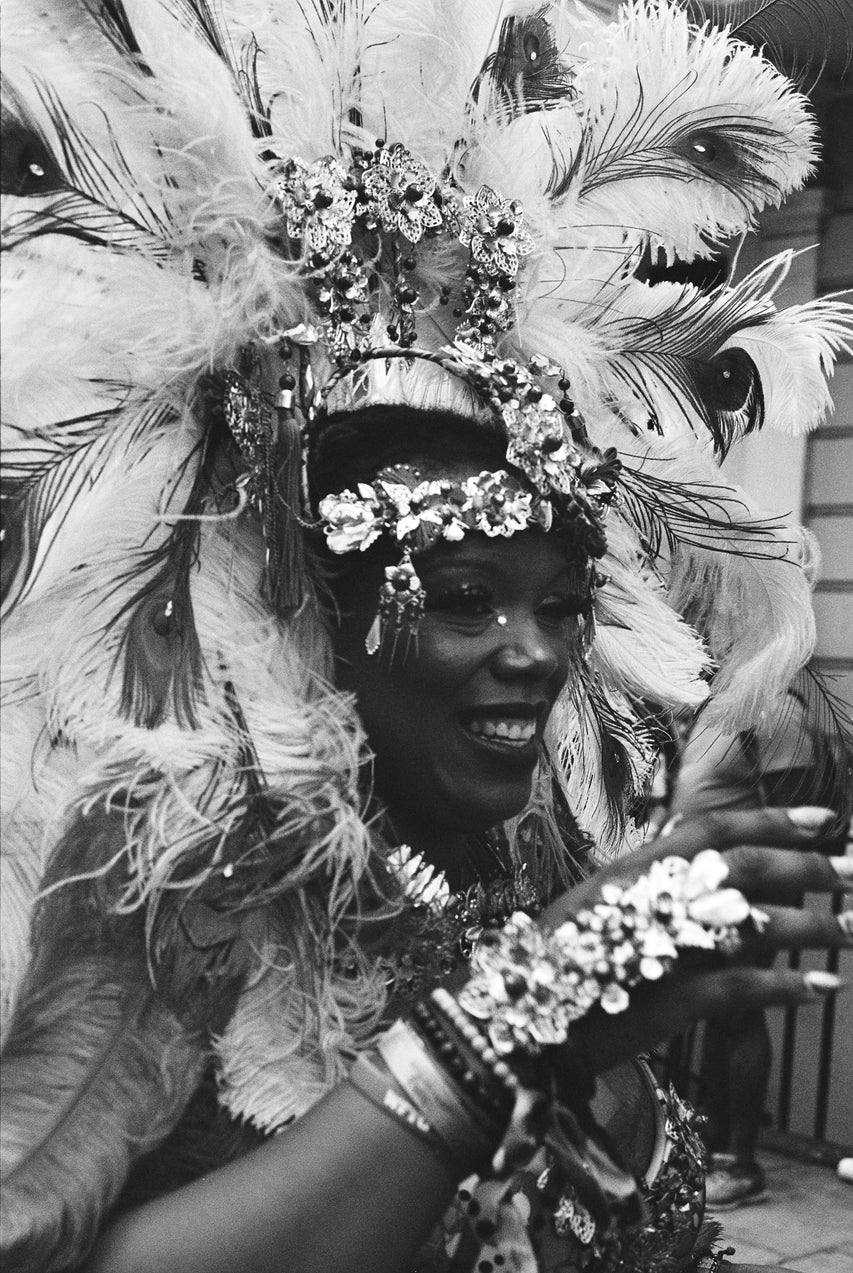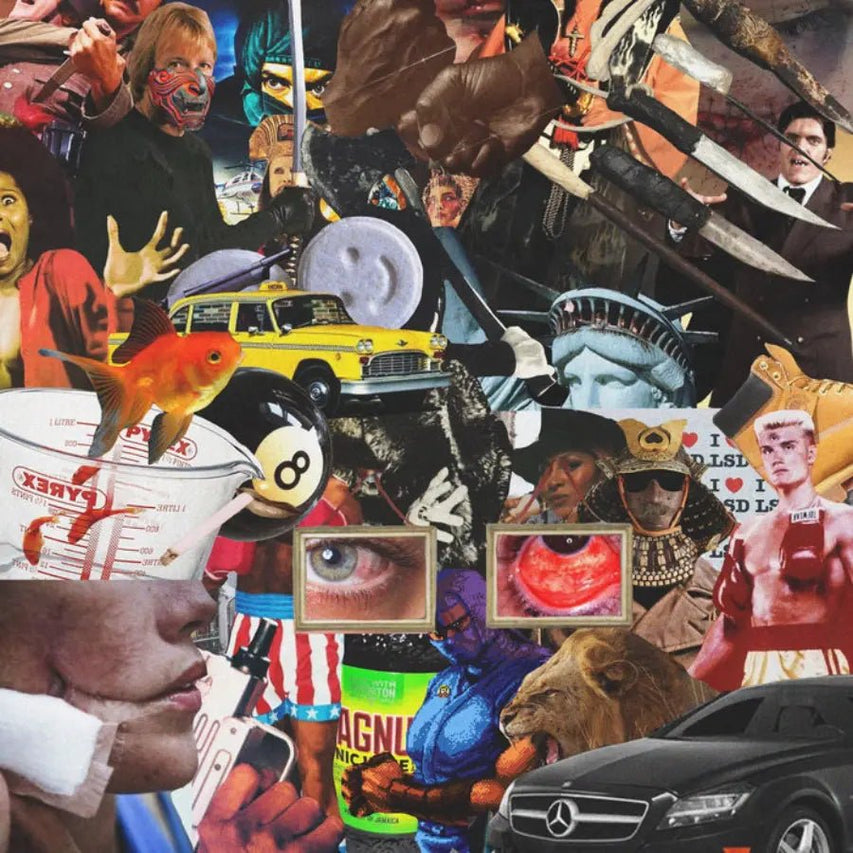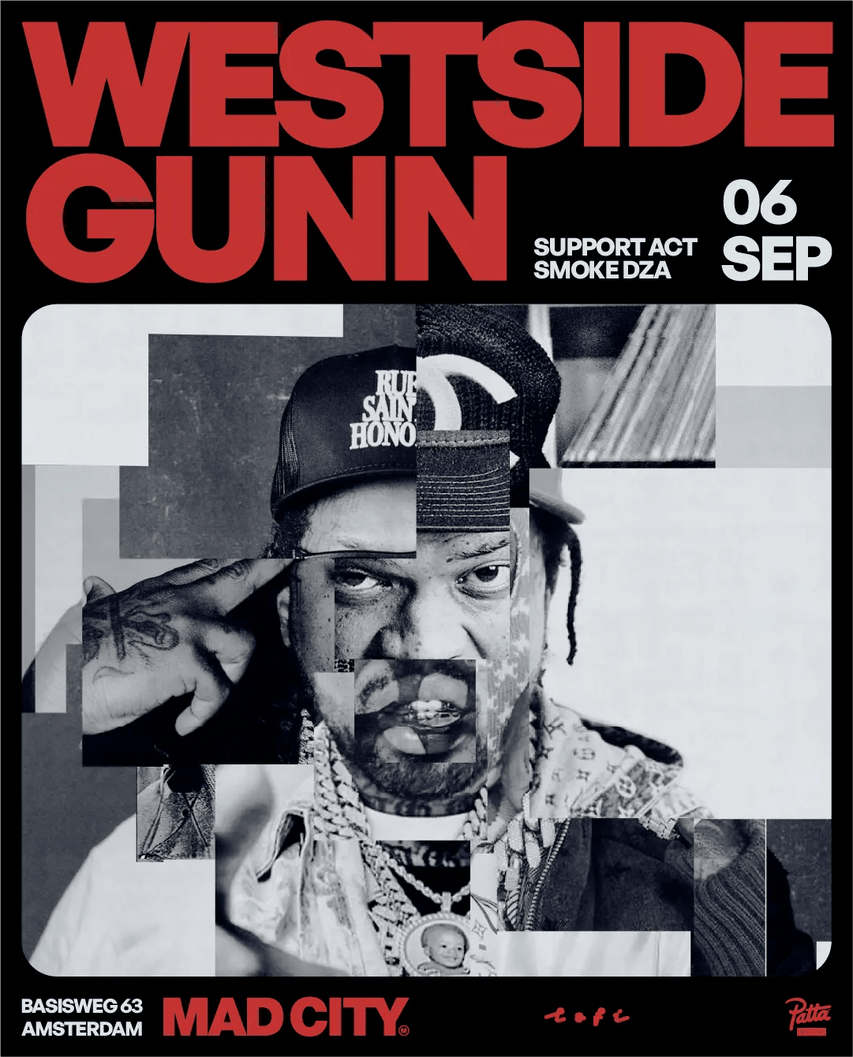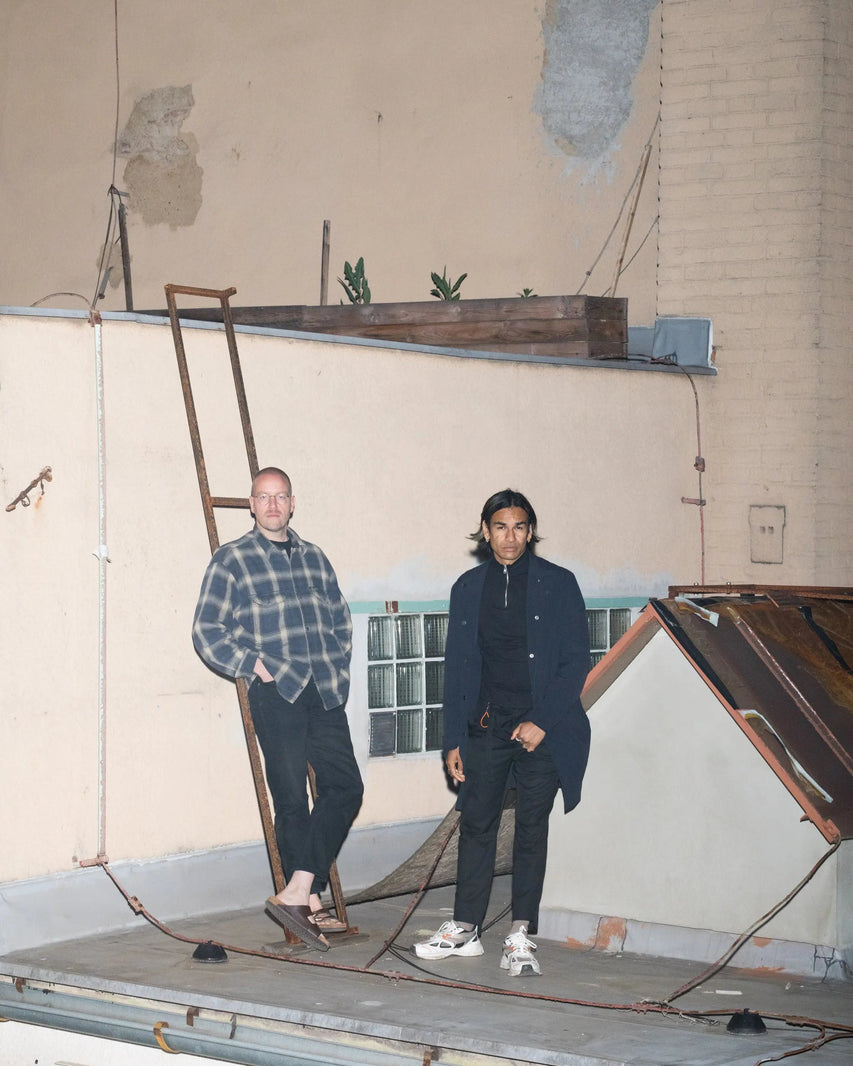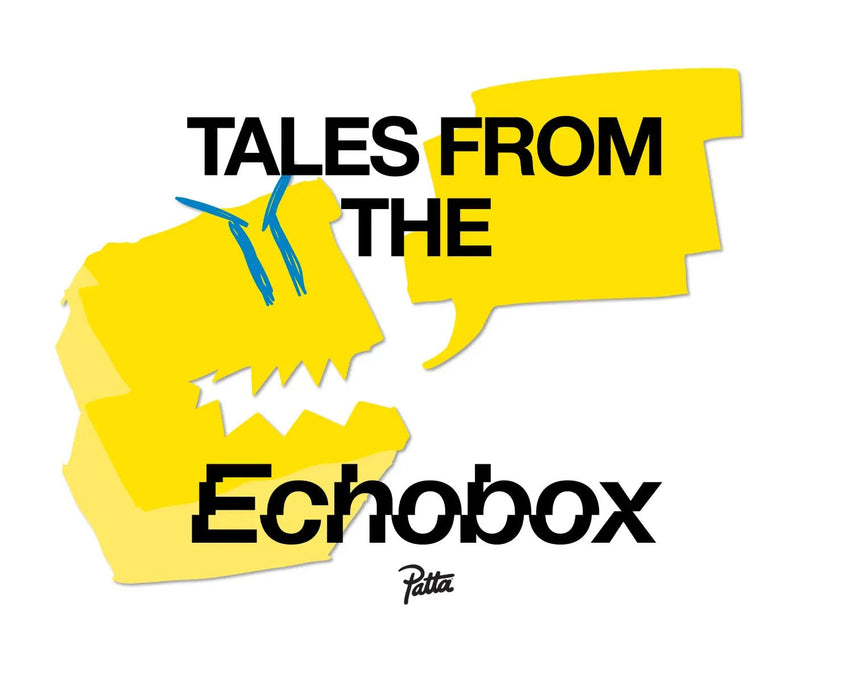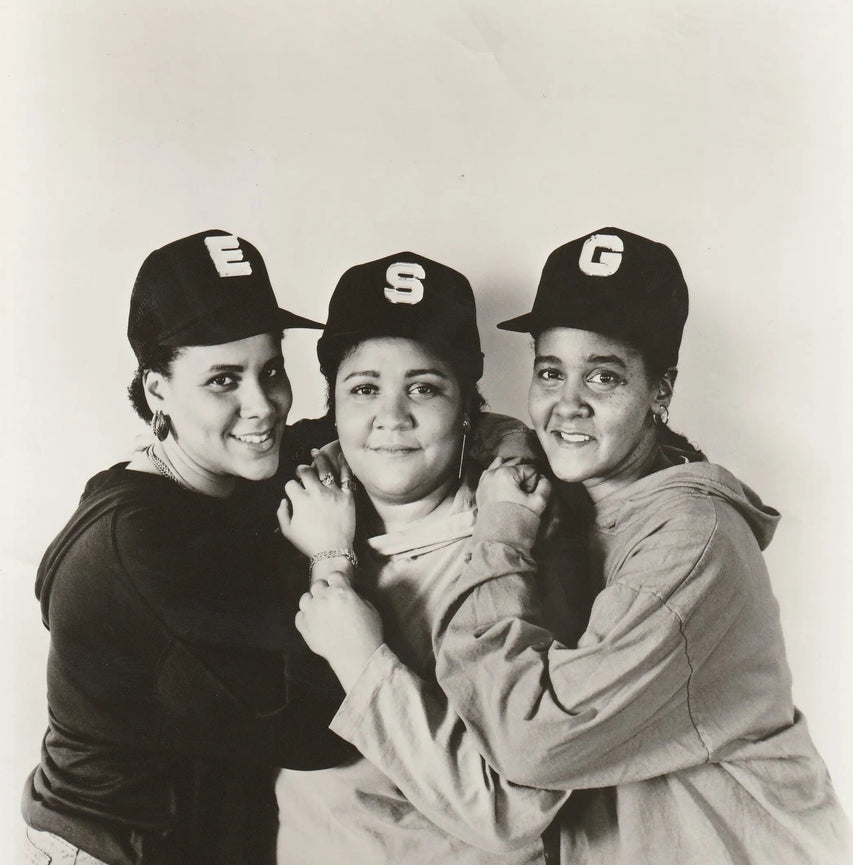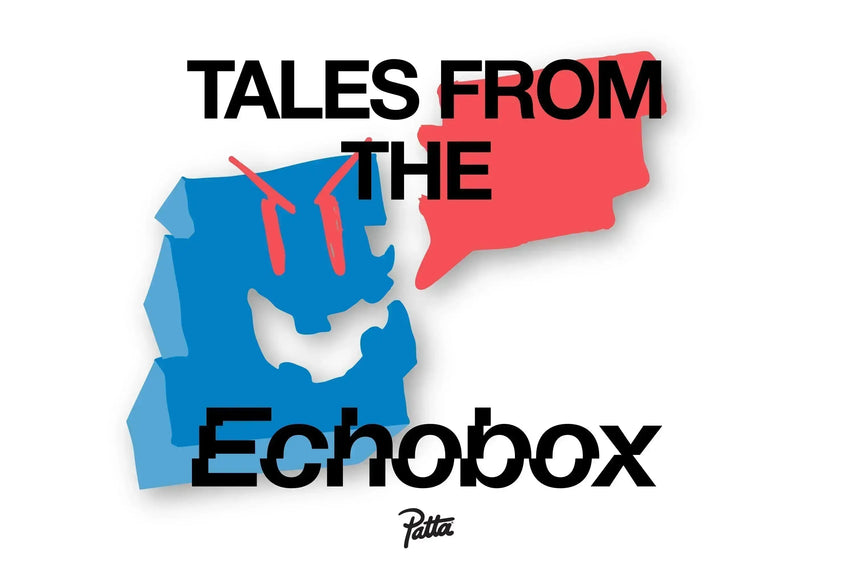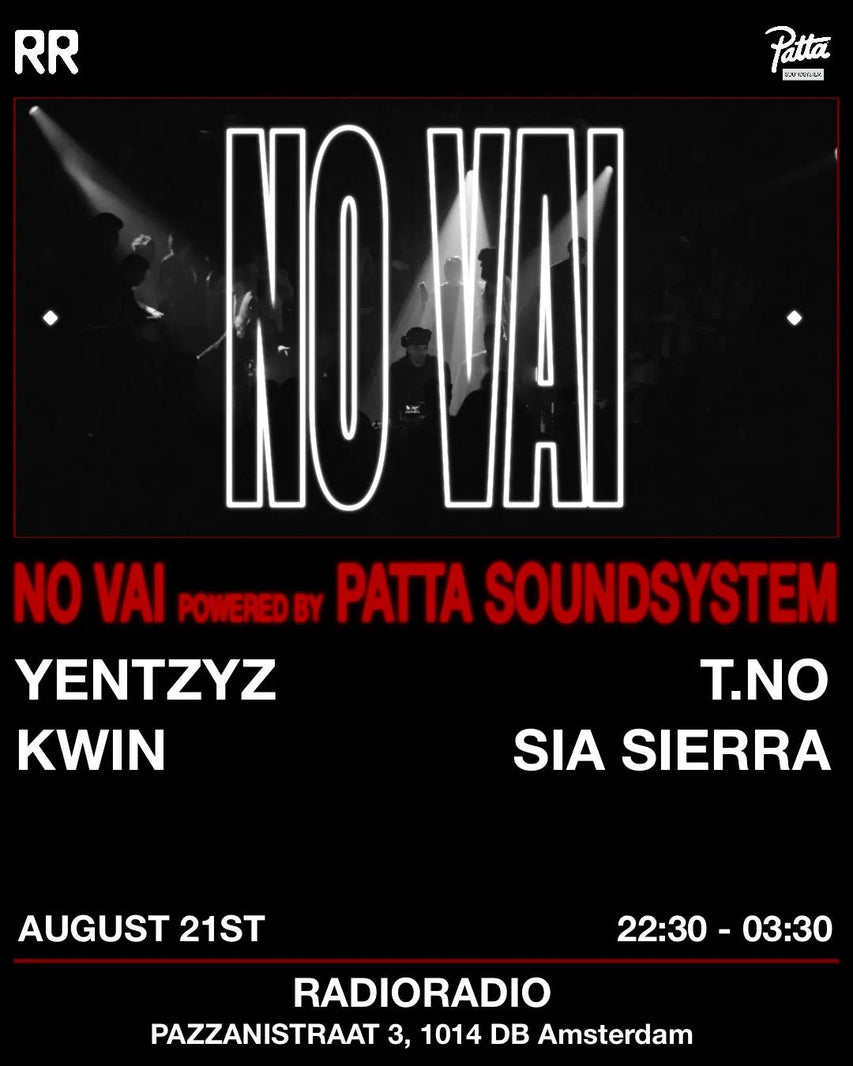
Tales From The Echobox 008
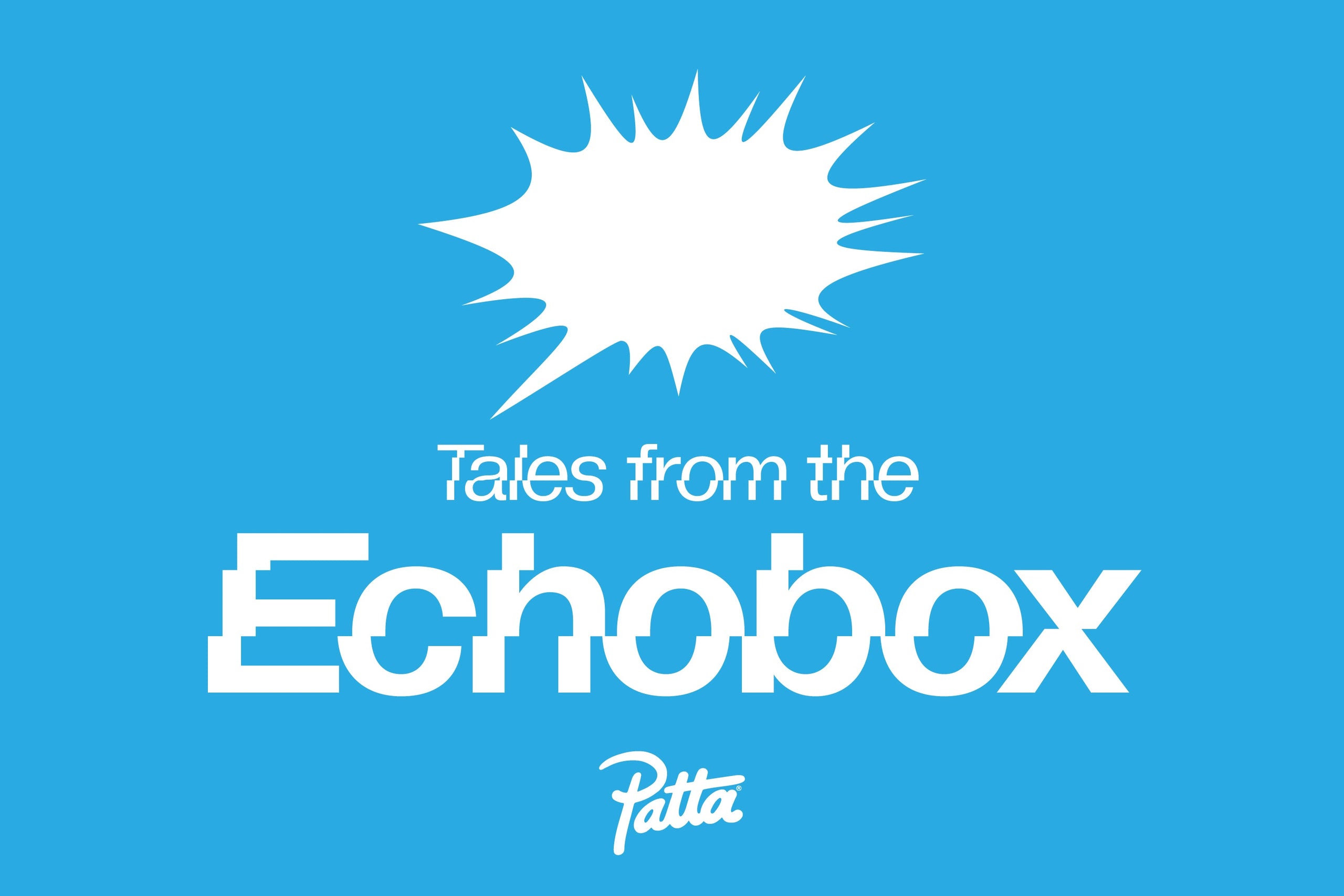
Launching in 2021, Echobox has been forging a path for community radio by showcasing the diverse characters and concepts that surround them. In this feature, we will be looking into a few of the broadcasts that you can tune into so get locked in and don’t touch that dial.
Voortouw - Hellie & Lenxi

Tell us about Voortouw, how did that start and what is the idea behind it?
Hellie: The idea of something like Voortouw has been around for many years, but it wasn’t until 2018 that it finally came to life as a club night out for idealistic reasons. Voortouw happened because the club scene lacked representation of marginalized people. It was a direct response to the (false) idea that unbalanced lineups are a result of there not being enough women Deejaying. In some ways, this urgency is still there, which is why Voortouw continued on Echobox!
Lenxi, you've recently become the co-host of Voortouw. Gefeliciteerd! How did the two of you meet and how did the radio link-up happen?
Lenxi: I met Hellie several times in different clubs in Amsterdam until we became really good friends, and realized we share the same motivation to create a bigger platform for women/non-binary folk in the music industry. I was Hellie’s first guest invited to do a live show on Voortouw, which was a lot of fun. Then I sat in for Hellie while she played a gig abroad, and following that Hellie asked me to officially be a co-host. It all happened quite naturally. I think community radio is a good place to kick start our ideals by inviting lots of female/non-binary producers and DJs on the show.
In a recent show, you spent some time evaluating the Voortouw project and discussing the challenges facing women working in the musical/cultural industries. What are some of the most important of these? Do you have any thoughts on how to provide solutions?
Hellie: I can’t stress the importance of representation enough. I still think a lot of places aren’t inclusive or safe for people from marginalised communities because diversity remains a challenge. From the people on stage through to the people working the floor, to the people calling the shots in the office. The cultural/music sector is still dominated by (white) cis-men, especially the higher up an organisation you get. It would be a big win for organisations to actively work on diversifying their teams.
Besides your radio making with Echobox Hellie, you also work at the Amsterdam Fund for the Arts/Amsterdams Fonds voor de Kunst (AFK) - what are some of the most exciting cultural projects you have personally become aware of through this work?
Hellie: I specifically love the diverse range of projects we get to fund. From helping Bnnyhunna kick start his career, to realising Arts of Resistance, to celebrating Enkutatash, the Ethiopian and Eritrean new year. I also hope anyone reading this who is working on a project will consider requesting funding from the AFK or anywhere else! I’d love to see more project proposals from the music industry, especially projects that celebrate the nightlife, pop and hip hop cultures and any other type of ‘niche’ subculture or genre in their projects. So, for anyone reading this, please contact me or go to www.afk.nl for information on how to get your upcoming cultural project funded.
Lenxi, you make music as Lenxi. Tell us a little about that project and what can we expect from you in the near future?
Lenxi: I started off singing in a punk-electro band, and I played the drums and did vocals in a grungy garage band. I think I’ve always needed a lot of creative outlets. Lenxi is my first solo project, in which I record instruments and vocals and produce everything myself: it’s way more electronic and dance-based than anything I’ve done before. At the moment I’m working on new tracks for my debut EP and doing a lot of collaborative writing as well because that keeps me inspired. I’ve got quite a lot of gigs lined up this fall, So keep your eyes peeled for my upcoming shows and releases!
Are there other organisations and collectives with a similar socio-cultural agenda to your show that are doing exciting things (in Amsterdam and beyond) at the moment?
Hellie: Just a week ago, Discwoman announced they’re discontinuing the project. They’ve given me, and I’m sure others, the voice, courage, and opportunity to be unapologetically myself. It made me realise how much has happened in the music industry regarding inclusive dance floors, equal pay between men and women, accessibility, and so much more. As an industry, we’ve come a long way.
Other organisations including pressure, Foundation FM, Grrlmusic, and KLAUW, have all been empowering others and helped solidify a network of women and people from marginalized communities within the (underground) club music scene. But these mentions don’t do justice to the scope of what’s out there, because there are so many more awesome people doing awesome things.
Rice, Peas, Roots & Culture - Marcel van den Berg & Wes Mapes

Can you tell us a little bit about yourselves? How did you meet, and how did the idea for doing radio come about?
Marcel: I'm an artist, mostly doing painting and ceramics. The idea for this radio show was to extend my artistic practice through music and talk with interesting people.
Wes: I'm an artist, builder and all-around creative. My most fulfilling role is as a father and partner though. I met Marcel in the spring of 2018 at De Appel. Knew right away that this is my ninja. Brother for life. Game recognizes game shit.
What is the idea behind Rice Peas Roots and Culture? What is important about showing the links between art, music, food and politics?
Marcel: The main focus of the show is exactly that: making connections between art, music, culture, food, and politics. Past, present and future. We want to create a platform where we can celebrate black life in all its facets. We play with the Funk and all that is funky. The Funk is that life force connecting everything to the One, raising consciousness to the higher parts of the spirit in a playful non-pretentious way.
Wes: There are intersections in all of this. As Black people, we do things in our way. If it is in California, Ghana, the ABC islands, Suriname, Panama, Jamaica or the UK, we still keep our seasoning through the most trying of scenarios. It's a cultural pedagogical approach, from the soul.
What are the most interesting examples of a crossover between art, music, and politics in the world at this moment for you?
Marcel: I'm digging what these Ghetto Gastro guys are doing, Black Power Kitchen, doing things like cooking at the Met museum. Also, Tremaine Emory from Denim Tears uses David Hammons’ flag on sweaters, or Theaster Gates' Rebuild Foundation archiving Frankie Knuckles' records.
Wes: The organic ones. It was done without commercialism or marketing in mind. Just done organically. From the soul.
What is happening in the world of your art at this moment in time?
Marcel: Got a couple of shows running and a couple coming up, working on a publication with the Van Abbemuseum. But mostly trying to find time to hit the studio as much as possible.
Wes: I have an upcoming show in Berlin. Another is in Gothenburg, Sweden. Working on some big projects I won't divulge here, but mostly more international plays.
What does community radio mean to you?
Marcel: I love it. Steppin' into the studio hearing drum and bass, do your show and leave while some masked Japanese folks play old-school Euro House from the 90s. That's playful.
Wes: A lot. It is a testing ground for a lot of ideas. Helps get other thoughts out for the overall art practice. It makes me research in different ways. Community radio is always gonna be dope, but it is grassroots in its essence
What are some of the challenges facing artists at the moment? How can they be overcome?
Marcel: Artists are always broke. Artists should value themselves more, get paid for the work they do and learn to say “no” and “fuck you” more often.
Wes: Too much fluff. More substance is needed. Too much art meant to match the interior architecture. Artists like Farida Sedoc, Marcel vd Berg, Dion Rosina are some of my main contemporaries. They keep it funky. Work hard on their practice. They do good work and have integrity in how they approach their work.
Wes, your Instagram shows a recent drawing by your son. Does he have the artist gene too?
You already know. They both do. They are lightyears ahead of me.
Hippies Punch Cats - Danny Keen

Could you start by telling us where and when your love for prog started? And for those uninitiated, how do you define prog and psychedelic rock?
My dad is an old hippy (the old fart still wears his silverweed leaf necklace) and our house was always full of 'space music, as I used to call it. As a little kid, I could spend the whole day listening to Oxygene by Jean Michelle Jarre and Emerson Lake & Palmer (or Ever So Late & Farmer as I used to call them). As I grew older I began to look for records with synths and mellotrons on them at jumbles and car boot sales and slowly but surely I began to amass a pretty serious collection although I still had no idea what kind of music it was. One day I was reading a music magazine, and there it was: Progressive Rock! I now knew what to search for when I went digging.
In its original form, Progressive Rock was about moving beyond conventional musical forms in terms of song structure, instrumentation and (sometimes cringe) lyrics. 1970 saw the arrival of the Minimoog, one of the first synths available in music shops, which coincidentally appeared around the perceived end of the psychedelic movement and a shift into what we now see as progressive rock. It's really difficult to say which music belongs in which category but I suppose at a push I would say psychedelic is based around more traditional song form, i.e. verse chorus bridge etc. and is more guitar-driven, whereas prog is more synth/mellotron/ keyboard based and makes use of much more extended song forms influenced by classical music.
Prog is known for its lengthy music solos and accomplished musicianship as much as it is for its fantasy-inspired artwork and lyrical content. What are some of your favourite examples of this?
The artwork and overall design of the records are something that attracted me as a small kid and still does today. I mean a triple-gatefold album with wraparound artwork, a record sleeve that's a full broadsheet newspaper, a book containing a complete map of the solar system etc. etc., what's not to love?
It's hard to pick a favourite but bands who understand the power of conceptual continuity such as Yes and Genesis, who have a very strong visual identity which gives a sense of purpose and completeness, a thread that links their work – my cup of tea (Tetley). Although not Prog (though founding member Steve Harris is a huge Yes fan) Iron Maiden are a great (relatively) modern example of this; if you think of their album covers and logo, not to mention Eddie their mascot, that's something that started with their debut album and continues to this day, the complete package, a whole world which as a fan you can dive into.
As well as crate digger and record spinner you’re a musician yourself. Could you tell us about the various musical projects you’re involved in?
My main instrument is the guitar. Not a day goes by that I don’t spend hours playing one of my beloved guitars (or gazing at them while nobody is looking). I have very specific ideas about what I want to achieve with the guitar and music which put me on a path that sometimes is a struggle but it's working out. Over the years I have been lucky enough to play with a lot of fantastic musicians both here in Amsterdam and abroad. I just finished the guitars for a new project from Tom Trago & San Proper called The nice Dirt Machine, nothing at all what you might expect from those two, nor me come to think of it. I worked with Young Marco on the soundtrack of Sam de Jong’s latest film, Met Mes which came out a couple of months back in which I played my patented guitar soundscapes as well as bass.
And, last but not least; I just released my new record. It's an electro/prog / ambient guitar and synth fest, I even sing on one track. It’s called Friends with everyone & Nobody and is available on all major streaming services (I despise these bloody vampires but at least it makes my kids proud). At the moment it’s only digital, however, there's talk of a vinyl release around December.
Why do hippies punch cats? This sounds quite out of character for the typical hippy.
Hahaha, it’s true. It’s a joke name of course. When I started my residency at Red Light Radio many moons ago I needed a name for my show. In the same week, I discussed with a friend how a lot of these self-proclaimed 'hippies' are some of the most uptight and stressed people you could meet. You know the type; used to take loads of coke and E's at the weekend and now is transformed by yoga and are spiritually enlightened. We were joking about how after a hard day of being spiritually superior and smug when they got home they took out their frustrations by punching fuck out their cat/dog/shakti mat etc. (disclaimer; I know a few people who fit this description and I am sure that have never beaten their pets). I play spacey hippy music and tick many stereotypical hippy boxes but refuse to take myself too seriously so this name suits my show perfectly well.
